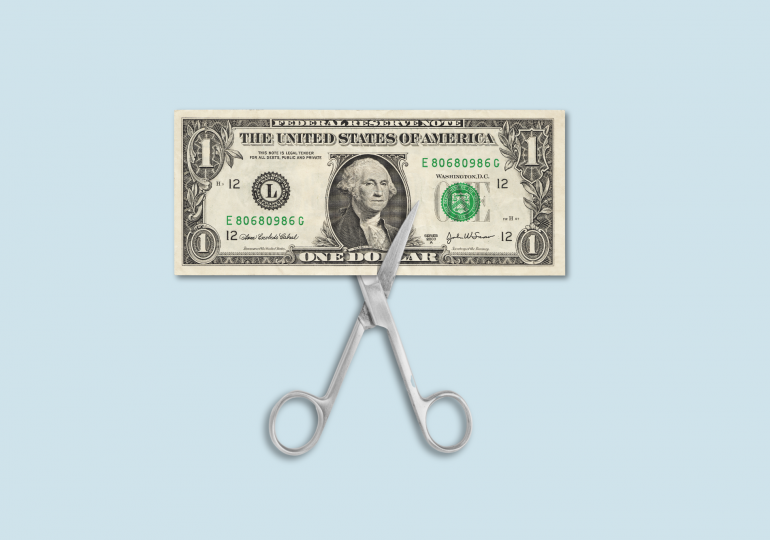Everything is negotiable, as the saying goes—and that includes medical bills. Although many people assume their health care bills are binding, there’s often more wiggle room than one would think.
“Never pay any bill right away,” says Caitlin Donovan, a senior director at Patient Advocate Foundation (PAF), a nonprofit that helps patients afford medical care. Prices that are incorrect, unaffordable, or simply higher than you think are fair can often be changed with a little effort. A recent report by the Commonwealth Fund, a health care research organization, found that about 40% of people who challenged an unforeseen medical bill ultimately secured a price reduction or even had their balance forgiven entirely.
[time-brightcove not-tgx=”true”]
Erin Duffy, a research scientist at the University of Southern California’s Leonard D. Schaeffer Center for Health Policy and Economics, found an even higher percentage when she surveyed a small group of U.S. consumers who received medical bills they disagreed with or couldn’t afford. About 40% of those people didn’t bother to contest their bills, often thinking it wouldn’t make a difference. But in reality, roughly 75% of those who challenged an unaffordable bill got financial relief, Duffy found. “It’s worth the call,” she says.
Making that call, however, can feel uncomfortable. Here’s how to do it.
Step one: Read the bill carefully
“Your first step is to really understand the bill,” says Jeremy Gurewitz, CEO of Solace, a company that connects consumers with health care advocates. Before you pay a cent, read over your bill and its accompanying explanation of benefits (EOB), the document your insurance company sends to summarize how it processed and covered the care you received. Make sure you understand what you’re being charged for and why.
Just as important, confirm that nothing is inaccurate, Donovan says. Errors on these documents are very common, she says, and can lead to overpaying. “Any time you get any medical bill in the mail, assume there’s a mistake and it’s your job to find it,” she says.
Make sure all of the basics—names, dates, and so on—are right. This may sound silly, but even glaring mistakes happen. “We’ve seen scenarios where people get bills for different people’s names” or for procedures they didn’t have, Gurewitz says.
Read More: How to Get Better at Doing Things Alone
Next, confirm that the amount on the bill matches the one specified on the EOB, Donovan says. Your EOB should also list the specific services for which you were billed. These billing codes can be hard to parse, but if any of them seem off, call your insurer to clarify. If necessary, you can ask for your bill to be reprocessed with the correct information.
It’s also worth confirming that your insurance benefits were applied correctly. Make sure that your insurance was billed at all; that services weren’t processed as out-of-network when they should have been in-network; and that your documents accurately list how much you’ve paid toward your deductible, if you have one.
In some cases, you may receive a letter saying that your insurer is denying coverage altogether, which can result in high out-of-pocket expenses. If you believe a denial is wrongful, you may have to appeal the company’s decision. Here’s a guide to doing so.
Step two: Do your homework
Before making any calls, calculate how much you can comfortably pay right away, as well as how much you can afford to pay over time, Donovan says. Keep those numbers in mind.
It’s also helpful to do some research on typical pricing for the services you received, Donovan says. This information isn’t always easy to pin down, since prices can vary widely by geographic area, provider, patient insurance status, and more. But tools like Medicare’s price database can help give you a frame of reference, she says. You can also try to find hospitals or health systems in your area that post their price lists online.
Step three: If necessary, enlist others
Successful negotiation “really does take some boldness,” Duffy says. “Some people feel a stigma or shyness about picking up the phone and saying, ‘I can’t afford this bill.’”
If you know that negotiating isn’t your strong suit—or if you’re dealing with a health issue that’s making you feel lousy—get help. A loved one may be able to handle the call on your behalf, or join you by three-way call or speaker phone. Pick someone who can be “assertive but diplomatic,” Donovan recommends. “The way you’re not going to win is having someone who’s screaming, because you’re trying to convince another person to help you.”
Read More: 11 Ways to Respond When Someone Insults a Loved One’s Disability
If you don’t have a loved one who is an ace negotiator, you can look into groups like PAF, Solace, and the nonprofit Dollar For, all of which offer patient assistance. You can also request a three-way call with your provider’s billing office and your insurance company if you’re hearing different things from each side, Donovan says.
Step four: Ask about financial assistance
If your bill is correct but higher than you can afford or think is appropriate, it’s time to negotiate.
First, call your provider’s billing department and ask whether they offer financial assistance, since many hospitals and health systems provide free or discounted care to certain patients. Eligibility for these programs can be surprisingly broad, sometimes including people whose incomes put them several times above the federal poverty level. Nonprofit hospital systems tend to have particularly robust charity-care programs, Duffy says.
It’s smart to start by asking whether you qualify for financial assistance, Donovan says. They may “say yes, and maybe you end up having no out-of-pocket costs,” she says. But even if they say no, “it preps the conversation. If you’re asking about financial assistance, it’s not going to be a shock to them” if you proceed to other negotiations.
Step five: Ask about payment plans or discounts
If you’re not eligible for a formal financial-aid program, you still have options. Many health care providers offer payment plans that allow you to pay off your balance in small chunks over time, sometimes without interest. Others may agree to “prompt pay” discounts, accepting a smaller lump sum right away rather than waiting for the full amount. But you might not know about these options unless you ask. Duffy’s research has shown that many hospitals offer payment plans, but far fewer publicly list that information online.
Read More: The Surprising Benefits of Talking Out Loud to Yourself
Here’s where your previous calculations about how much you can afford to pay will come in handy. “You can say something like, ‘I can’t afford the full price of what you’re charging, even after insurance,’” Donovan says. Then, either suggest a smaller, immediate lump-sum payment, or an amount that you can pay each month for a set amount of time. “They know on some human level that not very many people can afford a, say, $10,000 bill,” Donovan says. “They want to get paid,” even if the payment is less than what they originally charged, “and you should use that to your advantage.”
If you feel your bill was improper—if, for example, you were led to believe that a service would be covered by insurance and it wasn’t—you should also mention that to strengthen your case, Gurewitz says. And if you’re really nervous about what to say, AI programs like ChatGPT can help you come up with a script, he notes.
Step six: Escalate
If negotiating didn’t work, consider ramping up your efforts, Gurewitz says. Advocates at his company have succeeded by sending letters to a health system’s billing department, as well as the organization’s CEO and legal team. If you try that approach yourself, use your letters to “lay out the situation and say, ‘I’m unable to pay this. I feel this payment is inappropriate and excessive. Here’s what I’m able to pay,’” and note that you’re also sending letters to other people within the organization, Gurewitz says. He recommends using certified mail so there’s a trackable paper trail.
And in really egregious cases, Gurewitz says, alerting the media can also be effective. Once a journalist starts looking into an astronomical bill, he says, it often disappears.
Leave a comment








